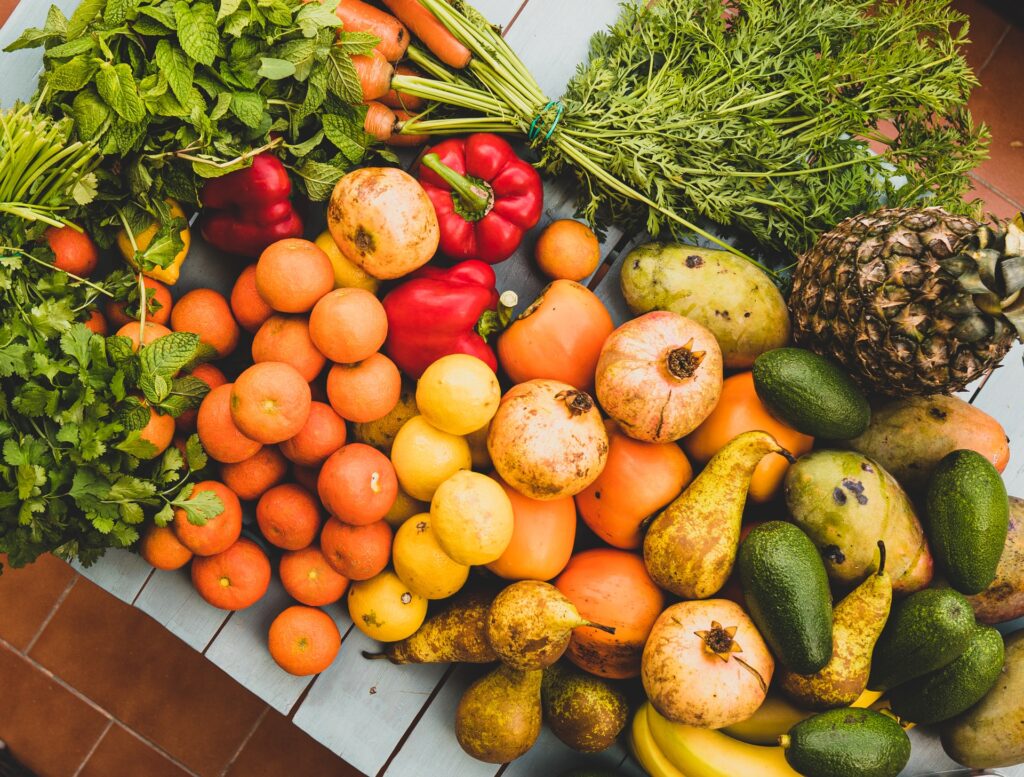Table of Contents
If you are someone who struggles with rheumatoid arthritis, you are not alone. It’s understood that this chronic joint pain can be life-altering in the worst of ways, but there are simple alterations you can make to your diet that will help moderate your flare-ups or potentially eradicate them entirely, as well as get you on a path of greater health in general.
Making big changes to diet is easier said than done, so don’t be too hard on yourself in the beginning. This is a journey that will ultimately allow you to reap beneficial rewards that you may have previously thought impossible. These changes take time and a period of trial and error to figure out which diet suits your specific needs.
The importance of home cooking cannot be stressed enough when discussing the endless benefits of changing your diet to manage your arthritis pain. Take matters into your own hands when it comes to your health and wellness and discover how the far-reaching benefits of being good to yourself pay off, and fast.
These are the foods that you should avoid or eliminate from your diet if you want to alleviate the impact that arthritis has on your life:

1. Dairy
If you suffer from arthritis, it’s important to avoid foods that contribute to inflammation, as this can cause you increased pain in your joints. Unfortunately, dairy is one of these foods that has been linked to inflammation. Dairy includes butter, milk, and cheese.
However, it’s not all bad news — there are plenty of dairy alternatives for you to choose from these days and limitless recipes to make these products competitively delicious. You’ll never know if you don’t try! Here is just one plant-based website that makes preparing healthy food simple and delectable.
2. Processed and Red Meat
Studies have found that processed meat should be avoided in excess for everyone, not only those suffering from arthritis. It’s difficult to know exactly where your meat comes from these days, and the chemicals injected into livestock to create the desired prototype on which these meat corporations can capitalize on with little regard for how it can negatively impact consumers is something many discuss as a downright criminal practice.
The abysmal living conditions of the animals are widely discussed by activists around the world, too. If on a molecular level, you are what you eat, it shouldn’t come as a shock that ingesting red meat and irresponsibly raised and processed meat cannot be recommended for someone with a health condition such as arthritis.
Not only can red meat worsen conditions for those suffering from rheumatoid arthritis, but it has also been linked to cancer and diabetes. Do your research and make it a priority to know exactly where your food is coming from. If you’re not prepared to say goodbye to red meat yet, at least shop organically and make a conscious effort to know where your food is coming from.
3. Refined Grains
Similar to the inflammation caused when you eat dairy, refined flour and grains strip all the essentials from your grains and cause inflammation in your body. A whole grain is composed of bran, germ, and endosperm.
Refined grains typically get rid of the most nutritional, essential parts of the grain, (the bran and the germ), to create a longer shelf life. This strips the grain of nutrients, like B-Vitamins, iron, and dietary fiber that your body needs to function properly. Your body absorbs these simplified grains fast— a little too fast.
They are then promptly converted into sugar, another highly inflammatory food that just happens to be next on our list. Go for whole grains the next time you’re in the grocery store.
A few examples of whole grains are brown rice, millet, oatmeal, and quinoa, (though technically a seed, quinoa is a complete protein and often classifies as wholegrain).
4. Artificial Sugars
Sugars are something everyone can afford to stay far away from, especially those of you suffering from arthritis. If you are a chronic soda-drinker or can’t seem to shake that sweet tooth, you’re far from alone. These artificially sugary beverages and candy bars have been proven to be as addictive as cocaine and with almost zero regulation.
Addiction is real when it comes to artificial sugars but if you’re someone who suffers from arthritis, these inflammatory products are an absolute no-go. Give yourself a few days to feel gross from the withdraws but make the removal of sugars from your diet a top priority. Instead, use natural sweeteners like maple syrup, (check the label and run fast from anything that has added sugars).
A good incentive to cut out artificial sugar from your diet is the excess calories and how they lead to weight gain. The last thing someone suffering from arthritis needs is to carry around extra pounds to further disrupt already delicate joints.
5. Refined Salt
Refined salt is everywhere— it’s probably what you just put on your food at the last restaurant you dined in and, most likely, it’s on your own kitchen table. Also known as table salt, refined salt allows for water retention in the body which compromises strong bones. Substitute your refined salt for the superior sea salt and Himalayan salt which are just as enjoyable and offer the necessary health benefits your body needs.
6. Monosodium Glutamate
People with arthritis should be extra wary of artificial food additives. The most common artificial food additive is monosodium glutamate. This is often found in frozen, packaged, and canned foods and it is most notably used to increase a products’ shelf life.
Monosodium Glutamate and other artificial food additives used recklessly in processed foods can offset inflammation, increasing your arthritis pain and discomfort. Again, we can’t stress the importance of prioritizing home cooking with fresh and organic ingredients.
Be good to yourself and be willing to spend a bit more money on high-quality foods and the time to prepare them. Remember, you’re making an investment in your health, and this is priceless.
7. Gluten
Those struggling with arthritis should also take measures to avoid gluten-containing foods. Gluten has been discovered to cause increased inflammation and is found in wheat, barley, and rye. Yes, this also means beer. If you suffer from arthritis, you should limit or omit entirely your consumption of beer.
Not only is this form of alcohol high in gluten, but it also can put you at higher risk for careless accidents such as falling. Avoiding alcohol could mean avoiding an incident that worsens your arthritis symptoms.
Struggling with arthritis can be painful, but making conscious efforts to eliminate unhealthy and inflammatory foods from your diet is key in reducing pain or even eradicating pain entirely. It takes commitment and devotion from you, but there are compassionate communities out there to help you cope and eventually thrive. While taking control of your diet is up to you and no one else, there are retailers of things such as clothing for arthritis sufferers that will make your life easier and less painful.















